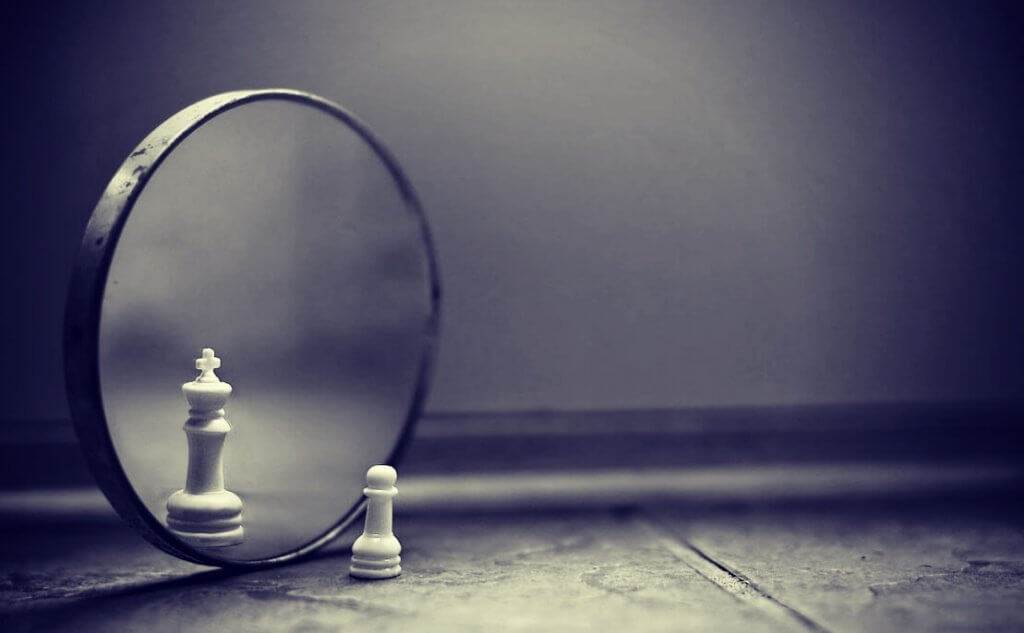Writer Garrison Keillor created a fictional town called “Lake Wobegon”. A place where, in their words, all women are strong, all men are beautiful and all children are above average. This definition has given its name to a cognitive bias known as the Wobegon Lake effect, which involves overestimaling positive skills and ignoring negative ones.
This phenomenon has also been called optimistic bias and is a very common effect. Specifically, 95% of drivers are considered better than others, as are most students. Believing we’re above average is very common. In fact, we tend to judge, on our merits, stereotypes and unconscious attitudes.
- If we were asked to rate our level of intelligence relative to the rest of the people.
- Most would say we’re above average.
- Some may even say they’re on the same level as others.
- But very few recognize being below average.
The effect of Lake Wobegon is also linked to an illusory superiority, that is, the conviction to consider himself superior to others and to ignore their faults and errors, in this way the individual establishes a false superiority over various aspects such as intelligence, beauty. behavior.
“Many go through life assuming that we are always right in everything: our political and intellectual convictions, our religious and moral beliefs, our appreciation for others, our memories, our way of understanding what is going on. If we stop to think about it, would anyone say that our usual situation is to unconsciously assume that we are very close to omniscience?Kathryn Schulz?
As Charles Darwin said, “Ignorance generates more trust than knowledge. ” As a result, illusory superiority tends to occur more in incompetent people who seek to overestimate their abilities. Nearsighted people recognize the skills and abilities of others.
This problem of self-deception and cognitive awareness is often related to the vanity that characterizes this type of person, who in addition to being considered superior are unable to recognize their mistake, cannot accept not knowing something or not having certain skills or abilities. .
The most interesting aspect of this cognitive bias is that the more incompetent a person is, the lower his consciousness, he prides himself on his intellectual abilities, culture and intelligence, when in reality he does not have these cognitive or cultural abilities. they are not aware of this and often are dominated by insecurity even if they do not demonstrate it.
Having a favorable view of one’s abilities is neither evil nor selfish, nor does it mean that we are ignorant, on the contrary, it helps us a lot. The problem arises when we do not know how to put a limit and believe that we are the best at everything, forgetting that we also have deficiencies and that there are many others with good qualities.
“Much of the difficulties facing today’s world are due to the fact that the ignorant are completely safe and the intelligent are full of doubt. “Russell?
Psychologists Justin Krugger and David Dunning of Cornell University in New York found that, in general, people who were well below average in terms of intellectual skills and knowledge were considered the smartest people in the country. Nietzsche called this group of ignorant people who boasted about their titles and years of experience.
In fact, four of the most important studies on the effect of Lake Wobegon coincide with these findings: people with below-average skills are often considered too good and also have great difficulty recognizing their own incompetence.
On the contrary, higher-income people feel that they are being unduly inferior to their actual abilities, i. e. they underestimate their abilities; Moreover, when they doubt themselves, they are more insecure and hesitant towards others and therefore inspire less confidence.
Overestimating the incompetent and underestimating the best performers, in many cases, makes the former taken into account by their high dose of safety and confidence, that does not mean that it is correct, but that we let ourselves be carried away by the first impressions.
In addition, the lack of ability to identify intellectual limitations arising from the Wobegon Lake effect poses two problems: poor decision-making and the inability to be self-cryptic, implying a blockade on the ability to grow and evolve as a person.
Does the existence of this effect lead us to reflect not only on how we are in terms of our own assessment, but also on how we evaluate others, build people’s skills and qualities, or simply rely on the safety they show without question?
“There are two infinite things: the Universe and human stupidity. And the Universe, I’m not sure? Albert Einstein?”

